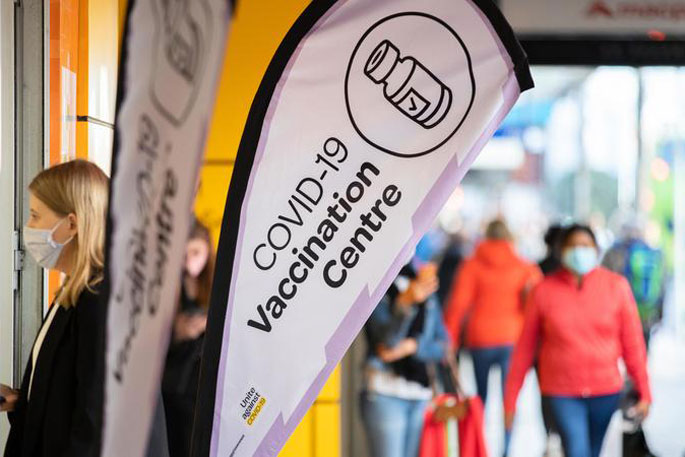Fewer people will be considered Covid-19 contacts and isolation requirements will be relaxed as the country enters phase two of the strategy for Omicron tomorrow.
The transition will take place at 11.59pm tonight and bring shorter isolation periods, increased use of rapid antigen tests and more relaxed contact tracing.
Prime Minister Jacinda Ardern has warned of looming disruption and record heath figures as case numbers escalate.
"It will be nothing like we've experienced to date but our efforts with vaccination mean we have got to this place without the volume of serious illness and death that so many others have experienced.
"But it will be new and so now is not the time to give up."
The most significant change under phase two will be the length of time cases and their contacts need to isolate.
People infected with Covid-19 and their household contacts will only need to isolate for 10 days, down from 14 days, and anyone else deemed a close contact will have to isolate for just seven days.
The same applies for those in MIQ and travellers who can bypass managed isolation when the border starts to re-open.
Cases will be notified via text message and will be directed to an online self-investigation tool which will help contact tracers focus on high risk exposures, like rest-homes and prisons.
Director General of Health Ashley Bloomfield says under phase two the criteria for close contacts will also be relaxed.
"It will be less disruptive for people it won't be just because you're at a cafe and there happened to be a case there for a period of time that you will have to isolate unless of course you were in that small group that the person may have been with."
Phase two also sees the start of the test-to-return-to-work scheme that allows asymptomatic essential workers deemed close contacts can return to work if they return daily negative rapid antigen tests.
The government has set a broad criteria for critical services that includes health services, lifeline utilities, and news media.
Businesses in those sectors were invited last Thursday to apply to be classed as a critical service so they can take part in the scheme and more than 5000 have applied so far.
"Once a business has signed up to the scheme an employee who is a close contact without symptoms will be able to go to a provider such as their local community vaccination clinic and secure a pack of ten rapid antigen tests," says Ardern.
"In some cases rapid antigen tests are being supplied directly to large scale critical workforces."
Business New Zealandchief executive Kirk Hope said businesses had not been given enough time to prepare.
"Businesses are still having to figure out whether they will meet the criteria to be critical and then what happens if they don't and they need access to rapid antigen tests to test their workers.
"So there are still some question marks from businesses."
Epidemiologist Michael Baker says people need to start assuming Covid-19 is everywhere, especially those who are elderly, have underlying health conditions or those living in Auckland where the bulk of daily cases are.
"People who are older or have underlying illness and are more vulnerable to a serious outcome need to really start taking precautions to limit their range of social contacts.
"And if you are more vulnerable and you're out interacting with people indoors you need to be wearing high quality masks the whole time."



0 comments
Leave a Comment
You must be logged in to make a comment.